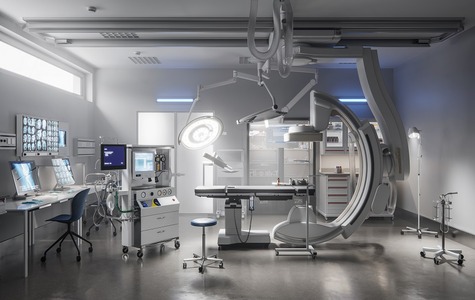- Medical Devices
- Monday, 01 Jun 2020
Portable and Wearable Dialysis Devices Market Analysis, Trends, Opportunities and Forecast to 2027
Portable dialysis devices are being used to reduce the disease burden by minimizing or completely eliminating dietary restrictions. Although dialysis machines are lifesavers, less attention is paid to them by the medical device industry. Portable dialysis machines are specifically designed for use at home setups or during traveling. These machines can considerably improve the quality of life by allowing patients to have dialysis while going around their daily activities. Wearable dialysis machines, also called wearable artificial kidneys, are disassembled dialysis equipment whose separate parts are fixed on to a belt that is worn around torso. The portable and wearable dialysis devices market growth is attributed to factors such as increasing number of ESRD patients, and limited availability of organ donors. However, reimbursement concerns in emerging market and technical challenges in WAK and WDD development hinder the growth of the market.
Based on product type, the global portable and wearable dialysis devices market is segmented into hemodialysis and peritoneal dialysis. The hemodialysis segment held a larger share of the market in 2019 on the back of the advantages of these devices and greater applicability of this technique in home-based services. Moreover, various companies operating in the market are engaged in the development of wearable and portable hemodialysis devices. For instance, in February 2020, Fist Assist Devices, LLC, a Silicon Valley startup, received European CE Mark approval for its eponymous wearable device named Fist Assist. The device works to widen up the vein’s diameter while preparing for fistula placement.
Get sample PDF copy at: https://www.theinsightpartners.com/sample/TIPRE00010481/
B. Braun Melsungen AG; Baxter International Inc; AllMed Healthcare Management, Inc; Asahi Kasei Corporation; Fresenius Kabi AG; AWAK Technologies; Quanta Dialysis Technologies Ltd; Medtronic; and Nipro are among the leading companies operating in the portable and wearable dialysis devices market.
The portable and wearable dialysis devices market growth is attributed to factors such as increasing number of ESRD patients, and limited availability of organ donors. However, reimbursement concerns in emerging market and technical challenges in WAK and WDD development hinder the growth of the market.
Most individuals with end-stage kidney disease receive dialysis treatment to recompense for some of the lost kidney functions by removing excess fluids and metabolic wastes, such as urea, collected in the blood. The global prevalence of end-stage renal disease (ESRD) exceeded to 2 million individuals, while the worldwide incidence substantially increased from 44 per million population (pmp) in 1990 to 93 pmp in 2010. Moreover, nearly 750,000 patients per year in the US are affected by ESRD. Internationally, the numbers are staggering. According to the estimates, 4 million people worldwide suffer from ESRD, and the number of patients diagnosed with the disease continues to increase at a rate of 5–7% per year. Taiwan, Japan, Mexico, the US, and Belgium currently have the highest prevalence of ESRD as per the data provided by the United States Renal Data System in 2019.
Kidney transplantation is the best treatment for most patients with ESRD, but only a few are able to reap the benefit due to the shortage of donor organs. For instance, as per National Kidney Foundation Inc., in 2017, 746,557 Americans had kidney failure and required dialysis or a kidney transplant to survive. Nearly 500,000 of these patients received dialysis at least three times per week. Further, nearly 125,000 people started ESRD treatment in 2017, of which 120,834 started dialysis, and 20,945 received a kidney transplant. At the end of 2017, more than 222,848 Americans were living with a kidney transplant. Only 23,400 Americans received a kidney transplant in 2019, while about 100,000 Americans are waiting for one.
Current methods of dialysis not only put a lot of burden on a country’s healthcare system but also disrupt a patient’s lifestyle. Patients on dialysis have to adapt their lifestyle and routine to the schedule of the therapy. Therefore, research is underway to develop a wearable artificial kidney that would help individuals remove wastes and fluids through more frequent, prolonged, or continuous dialysis sessions on the go without interrupting their daily activities. This could improve patient’s health while reducing the impact of treatment on the quality of life. Hence, the adoption of the wearable artificial kidney is likely to experience rapid adoption, in turn propelling the market growth
Purchase Copy of This Report at: https://www.theinsightpartners.com/buy/TIPRE00010481/
About Us:
The Insight Partners is a one stop industry research provider of actionable intelligence. We help our clients in getting solutions to their research requirements through our syndicated and consulting research services. We are a specialist in Life Science, Technology, Healthcare, Manufacturing, Automotive and Defense, Food Beverages, Chemical etc.
Contact Us:
Call: +1-646-491-9876
Email: sales@theinsightpartners.com
Related Industry Updates
Orthopedic Navigation System Market is expected to reach US$ 7,477.32 million by 2030
Nov 02, 2023
Know how Asia Pacific Blood Collection Devices Market is rising during 2019-2027 with Impact of Covid-19? Analysis by Nipro, Cardinal Health Inc, Terumo Corporation
Aug 29, 2020
Trump's excoriated GM over ventilators quickly turns to praise
Mar 30, 2020
Portugal Sterilization Services Market is expected to reach US$ 162.34 million by 2030
Sep 20, 2023
Ophthalmic Ultrasound Devices Market – Advanced Technologies & Growth Opportunities in Industry By 2027 | Halma plc, Quantel Medical, NIDEK CO. LTD
Feb 10, 2021
North America Sterilization Services Market 2020 Growth, Opportunities, Demand, & Forecast To 2027 I E-BEAM Services, Sterigenics U.S.
Aug 20, 2020
Global Genomics Market Business Opportunity to 2027 – Top Key Player General Electric Company, Thermo Fisher Scientific Inc., Agilent Technologies, Inc., Eurofins Scientific, QIAGEN
Mar 26, 2021
